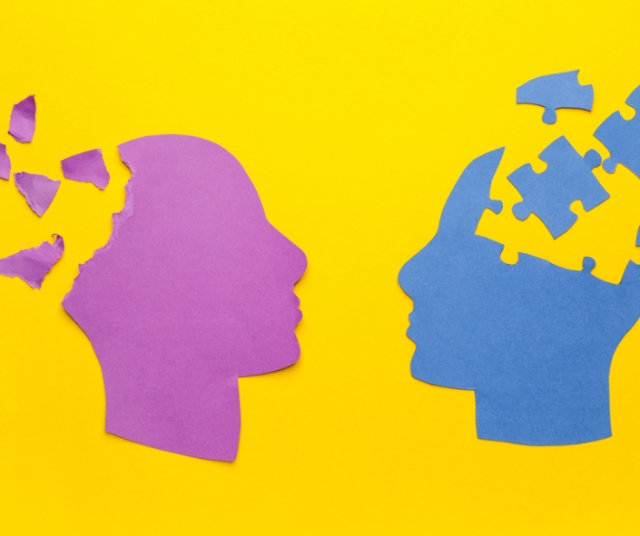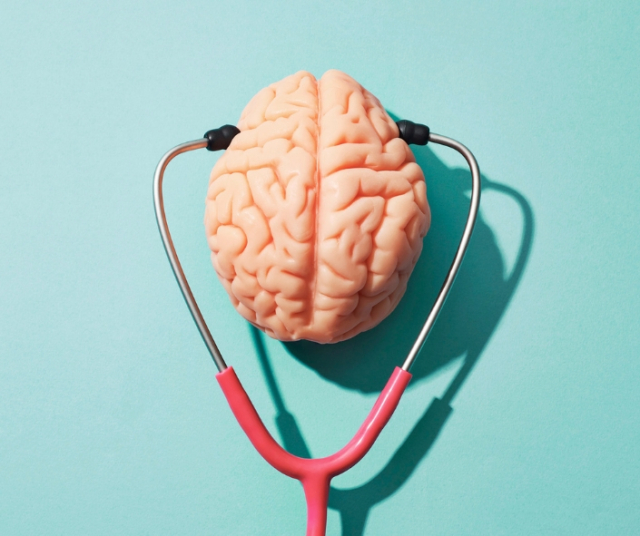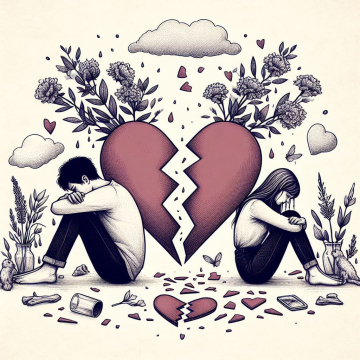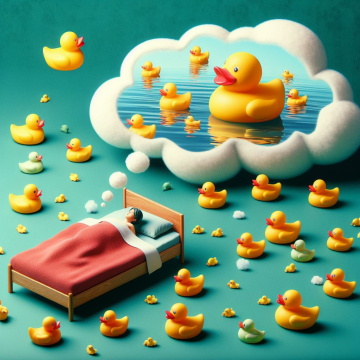What does the psychology of dreams tell us?

Dreams, that mysterious window to the realm of the subconscious, have intrigued humanity throughout history. In the vast theater of the mind, the stage of dreams becomes a space where unexplored narratives unfold, full of symbolism, emotions and experiences. Psychology, with its various currents and theories, has approached the phenomenon of dreams from different perspectives, shedding light on its meaning, function and connections with the human psyche. In this extensive article, we will delve into the fascinating field of study that is dream psychology, exploring its theories, interpretations, and the influence they have on our understanding of the mind and soul.
Dreams Through the Ages: From Myths to Modern Psychology.
Ancient Myths and Interpretations: The Beginning of the Dream Conjecture.
Since time immemorial, dreams have captured the human imagination. In ancient civilizations, dreams were interpreted as divine messages or bearers of omens. Myths and legends from various cultures attest to the importance given to these night visions, establishing the foundations for future psychological explorations.
Freud and the Birth of Psychoanalysis: Dreams as a Window to the Unconscious.
At the beginning of the 20th century, Sigmund Freud, father of psychoanalysis, burst onto the scene with a revolutionary theory about dreams. For Freud, dreams were the royal route to the unconscious, a terrain where repressed desires and psychological conflicts were expressed symbolically. Dream analysis became a fundamental tool for unraveling the mysteries of the human soul.
The Interpretation of Dreams according to Freud: Symbols and Hidden Desires.
Manifest and Latent Content: Deciphering the Dream Layers.
Freud introduced the distinction between the manifest and latent content of dreams. The manifest content is the superficial and evident plot of a dream, while the latent content is the symbolic representation of repressed desires and thoughts. Psychoanalysis immersed itself in the interpretation of these symbols, seeking to reveal the dreamer's internal conflicts.
Sexual Symbolisms and Oedipal Complexes: The Hidden World of the Unconscious.
Freud associated many elements of dreams with sexual symbolism and Oedipal complexes, creating an intriguing but controversial view of dream psychology. For him, objects such as stairs, tunnels or animals could represent sexual aspects of the psyche, revealing repressed desires or emotional tensions.
Carl Jung and the Collective Unconscious: The Universal Symbolism of Dreams.
Archetypes and Universal Symbols: The Deep Connection between Human Dreams.
Carl Jung, a disciple of Freud, proposed a different perspective in his theory of the collective unconscious. According to Jung, dreams contained universal archetypes and symbols that connected humanity on a deep level. Elements such as the hero, the shadow or the mother symbolized shared experiences that transcended individual cultures.
Integration and Self-knowledge: The Journey towards Individuation.
Jung viewed dreams as a tool for individuation, the process of integrating the various parts of the psyche to achieve wholeness. Dreams offered clues about an individual's relationship with their unconscious and provided opportunities for self-knowledge and personal growth.
Contemporary Approaches: Cognitive Psychology and Information Processing.
Information Processing: Dreams as a Reflection of Cognition.
Cognitive psychology, in contrast to the more symbolic theories of Freud and Jung, focuses on how dreams reflect information processing. Dreams can be seen as the result of the mind organizing and processing daily experiences, consolidating memories, and solving problems symbolically.
Neuroscience and Dreams: Exploring Nighttime Brain Activity.
Advances in neuroscience have led to new understandings of brain activity during sleep. REM (rapid eye movement) and non-REM sleep phases are associated with different types of dreams. Neuroscience seeks to decipher the relationship between brain activity and dream content, providing a more biological perspective on dreams.
Dreams and Mental Health: Indicators of Well-being and Psychological Challenges.

Dreams and Trauma: The Reflection of Painful Experiences.
Dreams can become mirrors of traumatic experiences. People who have faced painful events may experience recurring dreams related to the trauma. Analysis of these dreams can be a therapeutic tool to address and process emotional pain.
Nightmares and Sleep Disorders: Nighttime Psychological Challenges.
Recurring nightmares may indicate the presence of sleep disorders or underlying psychological problems, such as post-traumatic stress disorder. Mental health professionals often use dream analysis as part of therapy to address these nighttime challenges.
Dream Interpretation Techniques: Tools for Personal Exploration.
Analysis of Personal Symbols: Creating an Individual Dream Dictionary.
Dream interpretation can become a personalized tool by creating an individual dream dictionary. By writing down and reflecting on the personal symbols and associated emotions in your dreams, you can develop a deeper understanding of your dream world.
Dream Therapy: Integrating Dreams into the Therapeutic Process.
Some mental health professionals incorporate dream therapy into their practices. Exploring dreams in the therapeutic context can provide valuable insights into emotional challenges and offer avenues for personal growth.
Popular Culture and Dreams: Influence on the Collective Imaginary.
Art and Literature: Dreams as a Source of Creative Inspiration.
Throughout history, dreams have fueled creativity in various disciplines. Artists, writers and filmmakers have found an inexhaustible source of inspiration in dreams, capturing them in works that explore the borders between reality and fantasy.
Contemporary Interpretations: Blogs and Dream Communities.
In the digital age, dream exploration has expanded through blogs and online communities. Individuals share their dream experiences, seeking interpretations and connections with other dreamers. This global interconnection expands the dialogue about the meaning of dreams in today's society.
The Future of Dream Psychology: New Research Horizons.
Integration of Technologies: The Intersection between Neuroscience and Dreams.
Research continues to explore the intersection between technologies and dreams. The use of tools such as functional magnetic resonance imaging (fMRI) allows mapping brain activity during sleep, opening doors to a more precise understanding of dream processes.
Innovative Therapies: Using Dreams as a Therapeutic Tool.
In the field of mental health, innovative therapies integrate dream analysis as an effective therapeutic tool. Methods such as cognitive behavioral therapy for nightmares (CBT-I) use specific strategies to address and reduce recurring nightmares.
Dreams as a Mirror of the Human Soul.
The psychology of dreams stands as a fascinating field of study that spans centuries of human exploration. From ancient myths to contemporary theories, dreams have been regarded as revealing of the human psyche, offering unique access to the deepest corners of the mind.
The psychology of dreams invites us to look beyond the surface of dream images, exploring the symbolism, desires and conflicts that intertwine in the threads of the nocturnal mind. Whether through the lens of Freudian psychoanalysis, the Jungian perspective of the collective unconscious, or contemporary neuroscientific research, dreams continue to be a fascinating enigma that sparks curiosity and reflection on the journey of human existence.
ARTICLES

How to get over a breakup?
Through self-care, reflection, and openness to new experiences, you can heal your broken heart and open yourself to a future full of love and happiness.

How do gifts strengthen relationships?
Gifts are much more than simple material objects; They are expressions of love, generosity, gratitude and celebration that enrich our relationships.

The impact of love on life
From romantic and family relationships to friendships and social connections, love has various forms and expressions.

Magical Creatures: Unicorns
Throughout the centuries, unicorns have continued to capture the imagination and admiration of people of all ages and cultures.

Magical creatures: The elves
Elves are creatures from European mythology, whose origins date back to the ancient beliefs and superstitions of Celtic and Germanic cultures.

The meaning of dreaming about ducks
Dreaming about ducks is an experience rich in symbolism, which can provide valuable clues about our psyche and our everyday experiences.